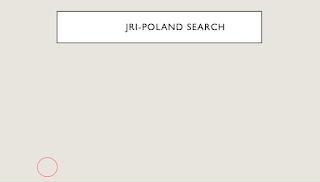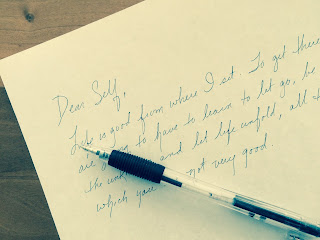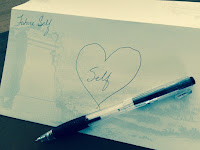 I was never very good at improv. Many years ago in high school I took debate. I remember it was fifth period, right after lunch. I used to be terrified of getting up in front of people. That meant I couldn't eat on a queasy stomach so would forgo lunch on debate days.
I was never very good at improv. Many years ago in high school I took debate. I remember it was fifth period, right after lunch. I used to be terrified of getting up in front of people. That meant I couldn't eat on a queasy stomach so would forgo lunch on debate days. I compensated for my fear by preparation. I considered every possible argument and my response, then their response to my response and my response to their response for several iterations. I remember index cards filled with facts. Despite the stress, I was good. My debate teacher wanted me to try out for the debate team. I declined, knowing what it would cost me in both stress and missed meals. The one thing my strategy of preparation didn't work for was improv. Periodically the teacher would throw us under the spotlight as he lobbed an unexpected prompt and expected us to think on our feet. I froze, the proverbial deer in the headlights. It required spontaneity and that wasn't my skill set.
I have gotten through much of my life on preparation. I was the girl who did her homework, always well in advance of the due date. Preparation takes you a long way. When I used to travel in my job I would not only plan the content for my calls on clients, but also plot my path from one appointment to another, always prepared. I was never one to brazen my way through what I didn't know. I studied and acquired knowledge, making sure I knew that of which I spoke. I considered it a virtue of sorts.
I do not like surprises. They force me to respond in real time. A friend of mine is a glider pilot. He used to talk about how in flight you had to learn how to react in the moment, in real time. I knew I would crash in real time, frozen in fear, and avoided those situations that called on split-second timing.
In recent years I have delved into new arenas and learned many new skills, often through the process of inquiry. I ask people what I don't know. I study from life and knit together new information that allows me to perform on new turf. Oddly enough as I've learned to respond to the unknown, even if not in real time, my relationship with improv seems to have changed.
I still prepare, especially when I do public speaking. I prepare until it is effortless, until I know it so well that my delivery seems truly spontaneous. More than seems, it actually is spontaneous which I know seems contradictory. It isn't memorized, it is integrated into my wiring. I've gotten over my fear of being in front of people and actually often relish it.
Recently I was giving a talk, a genealogy talk on the theme of solving puzzles. Now I've often said that what unites all the disparate things that I do is they all involve solving puzzles and telling stories. In this talk I began with the hypothesis that genealogists like to solve puzzles and that often extends to such games as Words With Friends. In fact many of the principles we employ in WWF also apply to genealogy. I outlined those parallels and then moved into some stories of actual puzzles and the process of solving them.
I had created a presentation with many images. A friend had given a talk prior, using a flash drive on my computer, and when it was my turn to speak we had a quick change off. I do my talks without notes, my presentation reminding me of where I'm going. The first few slides went smoothly and I had settled into a comfortable speaking rhythm when something strange occurred. An expected image failed to appear. I moved my slides forward and horrified realized that all of my images had fled the slides. Now some elements remained; text boxes summarized information that was now gone, circles around information on an image that had now gone missing and that all important header was there, tipping me off to something that had once occupied the page. It was as if my images had flung their clothes about, then run out the door in haste. Hats and scarves left behind announced the occupant who had been there just moments earlier. Suddenly I was in that real time I had so dreaded.
I contemplated rebooting my computer in the hope that it would resolve, but hesitated to
 take the time from the narrow window which remained. Every second seemed extended as my audience awaited my decision. I looked at them looking back at me. I felt a bit light-headed, unsure how this would play out.Then in a moment of resolve I decided to do the presentation without images. An odd thought popped into my head. "This could be interesting. I wonder if I can puzzle it out as I talk about it." It was a game of wits, a test of my mettle as slides appeared like soup cans missing labels. Something in me eased, the release that comes from committing to a path. Could I brazen through this, prancing on that high wire without plunging?
take the time from the narrow window which remained. Every second seemed extended as my audience awaited my decision. I looked at them looking back at me. I felt a bit light-headed, unsure how this would play out.Then in a moment of resolve I decided to do the presentation without images. An odd thought popped into my head. "This could be interesting. I wonder if I can puzzle it out as I talk about it." It was a game of wits, a test of my mettle as slides appeared like soup cans missing labels. Something in me eased, the release that comes from committing to a path. Could I brazen through this, prancing on that high wire without plunging?Adrenalin can carry you a long way, weaving a safety net that holds you in its embrace.
 Sheer energy can mask the underlying panic and keep you moving. It doesn't hurt to have prepared so much you can do it without notes. I looked at each slide trying to remember that missing information, telling them what the red circle had once circled and looking for clues to my story.
Sheer energy can mask the underlying panic and keep you moving. It doesn't hurt to have prepared so much you can do it without notes. I looked at each slide trying to remember that missing information, telling them what the red circle had once circled and looking for clues to my story. It is only now as I write this that I realize how appropriate this experience was to the topic, a puzzle on puzzles. I am also a bit amazed at how far I have come with impromptu performance,for it is indeed a performance. Now I certainly wouldn't seek that experience out, but I learned something about my own capabilities. I am learning to trust my ability to grapple with the unknown as it arises when I least expect it.
And if you are interested in that presentation with images, you can find it here.






